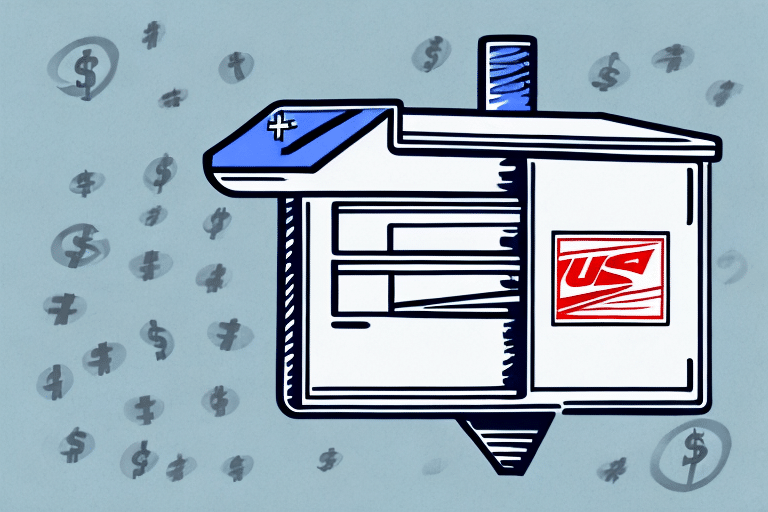Understanding USPS Insurance Costs and Benefits
Shipping valuable items with the United States Postal Service (USPS) requires careful consideration of insurance options to protect your shipments from potential loss, damage, or theft. This guide explores the various types of USPS insurance, how costs are calculated, the benefits of purchasing insurance, comparisons with other carriers, and tips for selecting the right coverage.
Why Insurance is Essential When Shipping with USPS
Shipping valuable items involves risks such as loss, damage, or theft during transit. Insurance provides financial protection against these risks, ensuring that you are reimbursed for the value of your shipment if something goes wrong. While USPS offers affordable insurance options, it's crucial to understand their policies to maximize your protection.
Key Benefits of USPS Insurance
- Cost-Effective Protection: USPS insurance is often more affordable compared to other carriers like FedEx or UPS.
- Peace of Mind: Knowing your shipment is insured reduces stress and provides assurance that you are covered in case of unforeseen events.
- Easy Claims Process: USPS offers a straightforward process for filing claims, ensuring timely reimbursement for lost or damaged items.
- Tracking and Delivery Confirmation: All USPS packages come with tracking services, adding an extra layer of security.
Types of Insurance Offered by USPS
Domestic Insurance Options
- Priority Mail Express Insurance: Provides coverage for expedited shipments with higher value limits.
- Priority Mail Insurance: Suitable for general shipments with moderate value protection.
- First-Class Package Insurance: Ideal for smaller, lighter packages with limited coverage needs.
International Insurance
For shipments outside the United States, USPS offers international insurance options tailored to the value and nature of the items being sent. It's important to review the specific terms and coverage limits for each destination country.
Specialized Insurance
- Registered Mail Insurance: Provides enhanced security and tracking for highly valuable or important items.
Calculating USPS Insurance Costs
The cost of USPS insurance depends on several factors:
- Declared Value: The total value of the items being shipped. Higher values result in higher insurance premiums.
- Type of Service: Different USPS services have varying insurance rates. For example, Priority Mail Express is priced differently than First-Class Package Service.
- Destination: International shipments may have different insurance costs compared to domestic ones.
Generally, USPS insurance is competitively priced, making it an attractive option for individuals and small businesses looking to protect their shipments without incurring high costs.
Comparing USPS Insurance with Other Carriers
Cost Comparison
USPS insurance is typically more affordable than insurance options offered by carriers like UPS and FedEx. For instance, insuring a $500 shipment with USPS may cost less than half of what it would with other carriers. This cost-effectiveness makes USPS a popular choice for budget-conscious shippers.
Coverage Scope
USPS insurance covers a wide range of items, including fragile and valuable goods such as jewelry, electronics, and artwork. Additionally, USPS provides free insurance coverage up to $50 for Priority Mail and up to $100 for Priority Mail Express, which can further reduce shipping costs.
Delivery Speed and Reliability
While USPS offers reliable insurance, carriers like UPS and FedEx may provide faster shipping options suitable for time-sensitive deliveries. It's important to balance cost with delivery speed based on your specific shipping needs.
Filing a Claim with USPS Insurance
Step-by-Step Claims Process
- Visit the USPS claims page.
- Complete the online claim form, providing details such as the tracking number, declared value, and description of the contents.
- Submit any required documentation, including proof of value and evidence of damage or loss.
- USPS will review your claim and process reimbursement based on the declared value and policy terms.
Important Considerations
Ensure that you accurately declare the value of your shipment and adhere to USPS guidelines on eligible items. Items such as perishable goods, live animals, and hazardous materials are typically not covered under USPS insurance.
Tips for Choosing the Right USPS Insurance Coverage
Assess the Value of Your Shipment
Determine the total value of the items you are shipping. Ensure that the declared value aligns with the actual worth to avoid underinsurance.
Consider the Nature of the Items
Fragile or high-value items may require additional coverage. Consider purchasing higher insurance limits or specialized insurance options like Registered Mail for enhanced protection.
Review Destination-Specific Policies
For international shipments, research the insurance policies and coverage limits of the destination country to ensure comprehensive protection.
Evaluate Shipping Frequency and Volume
Frequent shippers may benefit from bulk insurance options or partnerships that offer discounted rates.
Understanding the Limitations of USPS Insurance
Exclusions and Restrictions
- Items such as currency, illegal substances, and certain hazardous materials are not covered.
- Damage resulting from improper packaging or handling by the sender is typically excluded.
- The insurance covers only the declared value of the contents, not additional costs like shipping fees or taxes.
Accurate Value Declaration
Ensure that the declared value accurately reflects the worth of the items being shipped. Under-declaring can result in insufficient reimbursement in the event of a claim.
Conclusion
USPS insurance offers a cost-effective and reliable way to protect your valuable shipments. By understanding the types of insurance available, how costs are calculated, and the benefits and limitations of USPS insurance, you can make informed decisions to safeguard your packages. Whether you're an individual or a small business, selecting the appropriate insurance coverage ensures peace of mind and financial protection during the shipping process.
For more detailed information on USPS insurance policies and to explore all shipping options, visit the official USPS website.






















